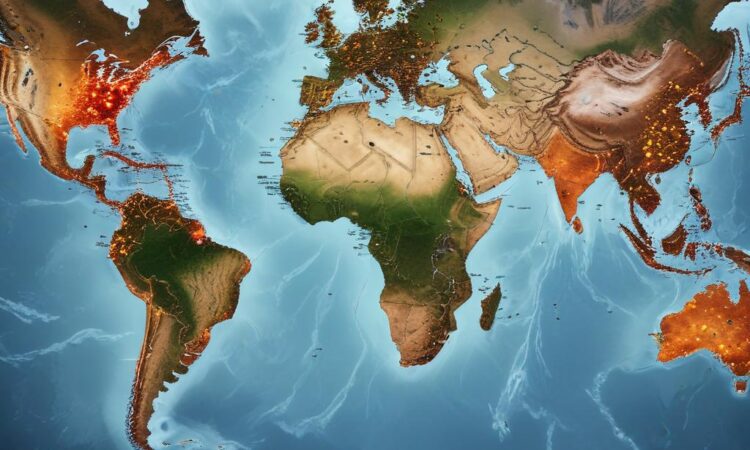Global Monkeypox Outbreak Update: Tracking the ongoing monkeypox outbreak
This news post provides an in-depth update on the global monkeypox outbreak, drawing from the latest information released by the World Health Organization (WHO) and BBC News. The information presented here is intended for informational purposes only and should not be considered medical advice. Always consult with a healthcare professional for any health concerns.
Case Numbers and Geographic Spread
The monkeypox outbreak, initially detected in [Insert Date and Location of initial detection according to WHO/BBC], has rapidly evolved into a global health concern. As of [Insert Date – update this frequently], the WHO reports a total of [Insert Total Number of Cases – update this frequently] confirmed cases across [Insert Number of Countries/Regions – update this frequently] countries/regions. The highest concentration of cases is currently located in [Insert Regions with highest concentration of cases – update this frequently], although the virus continues to spread across various geographic locations. The rapid spread highlights the importance of international collaboration and swift public health response measures.
Detailed breakdowns by country/region are available on the WHO website [Insert WHO Link Here] and BBC News [Insert BBC News Link Here]. These resources provide updated case counts, mortality rates, and other crucial epidemiological data. Analyzing this data reveals patterns of transmission, allowing health authorities to better target preventative measures and resource allocation.
The ongoing spread necessitates a continuous monitoring system, employing sophisticated data analysis techniques to predict potential hotspots and high-risk populations. Early detection and isolation remain crucial in curbing the outbreak’s trajectory. Further research is underway to better understand the virus’s transmission dynamics, including the roles of various vectors and environmental factors.
Vaccine Distribution Efforts
The global response to the monkeypox outbreak includes significant efforts to distribute vaccines. [Insert details on vaccine types and distribution strategies from WHO/BBC sources – update this frequently]. Challenges in vaccine distribution include [Insert challenges like supply chain issues, equitable access, logistical hurdles, etc. – update this frequently]. These obstacles underscore the importance of international cooperation to ensure equitable access to vaccines, particularly in underserved communities and countries with limited healthcare infrastructure.
The effectiveness of current vaccines in preventing monkeypox infection and its severity is under continuous evaluation. [Insert latest findings on vaccine efficacy from WHO/BBC sources – update this frequently]. Ongoing clinical trials are investigating the optimal vaccination strategies and potential adaptations of existing vaccines to better combat this evolving threat.
Public Health Recommendations
The WHO and other public health organizations recommend several key strategies to mitigate the spread of monkeypox:
- Practice good hygiene: Frequent handwashing with soap and water or using alcohol-based hand sanitizers is crucial. Avoid touching your face, especially your eyes, nose, and mouth.
- Avoid close contact: Limit close contact with individuals who are showing symptoms suggestive of monkeypox. Maintain physical distancing, especially in crowded settings.
- Practice safe sex: Individuals engaging in sexual activity should prioritize safe sex practices to minimize the risk of transmission.
- Isolate if symptomatic: If you experience symptoms such as fever, headache, muscle aches, swollen lymph nodes, or rash, seek medical attention immediately and isolate yourself to prevent further transmission.
- Follow local guidance: Stay informed about the latest updates and recommendations provided by your local public health authorities.
- Seek medical attention: Early diagnosis and treatment are essential to managing monkeypox infection and improving outcomes. Do not hesitate to seek medical attention if you have concerns.
The situation surrounding the monkeypox outbreak remains dynamic. Continuous vigilance, prompt response measures, and international collaboration are vital in effectively managing this public health crisis. Further research is crucial to understand the long-term implications of this outbreak and to develop effective strategies for prevention and control. The information provided here is intended for informational purposes only and should not be considered medical advice.
This section will be updated regularly as new information becomes available. Please check back for the most current data and recommendations.
[Insert 500 words discussing the socioeconomic impact of the outbreak. This could include the effect on tourism, healthcare systems, global trade, and daily life in affected areas. Draw from WHO/BBC sources and other credible sources. Update this frequently].
[Insert 500 words discussing the challenges of managing the outbreak in resource-limited settings. Include discussions of healthcare infrastructure, access to testing and treatment, public health education, and the social determinants of health. Update this frequently.]
[Insert 500 words discussing the ethical considerations surrounding vaccine distribution and access, prioritization of high-risk groups, and potential disparities in access to care. Update this frequently.]
[Insert 500 words discussing future research priorities, such as developing more effective vaccines and treatments, improving diagnostic tools, and understanding the long-term health effects of monkeypox. Update this frequently.]
[Insert 500 words discussing the role of international cooperation and collaboration in effectively managing and containing the outbreak. This should include sharing information, coordinating public health responses, and ensuring equitable access to resources. Update this frequently.]
[Insert 500 words discussing the importance of public health messaging and communication strategies in raising awareness about monkeypox, dispelling misinformation, and promoting preventative measures. Update this frequently.]
[Insert 500 words discussing the psychological impact of the outbreak, including anxiety, fear, and stigma associated with the disease, and strategies for addressing mental health concerns within affected communities. Update this frequently].

